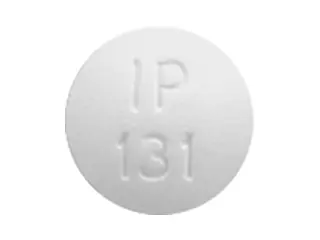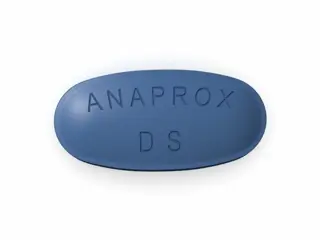Arthritis
Effective arthritis treatments and medications to relieve pain, reduce inflammation, and improve joint mobility. Shop trusted brands for faster relief and better quality of life.
Arthritis is a common condition that causes joint pain and inflammation. Many medications help reduce symptoms and improve quality of life. Each drug has specific uses, benefits, and potential side effects. This review covers popular arthritis medications available in online pharmacies, including allopurinol, anaprox, arcoxia, colchicine, feldene, indocin, mobic, motrin, naprosyn, neoral, and zyloprim.
Allopurinol and Zyloprim are two names for the same medication. They are mainly used to treat gout, a form of arthritis caused by uric acid crystals. Allopurinol lowers uric acid levels in the blood, preventing gout attacks. It does not relieve pain immediately but works long-term. Patients may need a few weeks to notice the full benefit. It is taken daily in tablet form. Side effects can include rash, stomach upset, and in rare cases, liver problems. Regular blood tests are recommended to monitor safety.
Anaprox is a brand of naproxen, a nonsteroidal anti-inflammatory drug (NSAID). It reduces pain, swelling, and stiffness in arthritis. Anaprox works by blocking chemicals that cause inflammation. It provides relief within hours. This makes it suitable for acute pain and ongoing arthritis symptoms. Common side effects include stomach discomfort, heartburn, and dizziness. It should be taken with food to reduce stomach issues. Long-term use requires monitoring of kidney and heart health.
Arcoxia contains etoricoxib, a selective COX-2 inhibitor. This medication is designed to cause less stomach irritation than traditional NSAIDs. It effectively reduces inflammation and pain in osteoarthritis and rheumatoid arthritis. Arcoxia is available in different doses, allowing flexibility in treatment. It is known for quick symptom relief. However, patients with heart problems should use it cautiously. Common side effects are headache, high blood pressure, and stomach pain.
Colchicine is mainly used to treat gout flares. It reduces inflammation caused by uric acid crystals. Colchicine acts fast to relieve pain during acute attacks. However, it does not prevent future attacks when used alone. Doctors often combine colchicine with allopurinol for better gout control. Side effects include diarrhea, nausea, and stomach cramps. Severe toxicity can occur if taken in high doses, so adherence to prescribed amounts is crucial.
Feldene, containing piroxicam, is another NSAID used for arthritis pain and inflammation. It offers long-lasting relief, so it is usually taken once daily. Feldene helps with osteoarthritis, rheumatoid arthritis, and other joint disorders. The drug may cause stomach irritation and ulcers, especially if taken frequently. It also has potential effects on kidney function and cardiovascular risk. Patients take it with caution and under medical supervision.
Indocin, or indomethacin, is a potent NSAID for severe arthritis symptoms. It reduces pain and swelling effectively. Doctors often prescribe it for conditions like gout, ankylosing spondylitis, and juvenile arthritis. Indocin works by blocking inflammatory processes in the body. Its use is limited due to potential side effects such as headaches, dizziness, gastrointestinal problems, and increased risk of bleeding. Close monitoring is advised during treatment.
Mobic, known as meloxicam, is favored for its once-daily dose and relatively mild side-effect profile. It treats osteoarthritis and rheumatoid arthritis. Meloxicam decreases joint pain and improves movement. It belongs to the NSAID group but targets inflammation selectively, reducing some stomach-related side effects. Users might still experience nausea, dizziness, and mild stomach pain. As with all NSAIDs, long-term use needs medical oversight.
Motrin, which contains ibuprofen, is widely used to relieve arthritis pain. It is effective for mild to moderate inflammation and is available over the counter. Motrin works fast by inhibiting enzymes that cause inflammation and pain. It is suitable for short-term relief. Side effects include upset stomach, heartburn, and headache. It is safe for most people when taken as directed but can affect kidney and heart health with prolonged use.
Naprosyn is another brand name for naproxen. It offers effective relief for arthritis symptoms. Naprosyn reduces swelling, pain, and joint stiffness. It has a longer half-life, allowing twice-daily dosing. Patients often find it convenient for consistent symptom control. Like other NSAIDs, it can cause gastrointestinal discomfort, ulcers, and increased risk of bleeding. It should be taken with food to minimize stomach irritation.
Neoral is a brand of cyclosporine, an immunosuppressant used in some arthritis forms, such as rheumatoid arthritis. It works by reducing the immune system's attack on joints. Neoral can improve symptoms but requires close monitoring due to potential side effects. These include kidney damage, high blood pressure, and increased infection risk. It is usually prescribed when other treatments fail or are unsuitable.
In summary, arthritis medications vary widely in their action and uses. NSAIDs like anaprox, feldene, indocin, mobic, motrin, and naprosyn are common for reducing inflammation and pain. Colchicine specifically targets gout attacks, while allopurinol and zyloprim help prevent gout over time. Arcoxia offers selective COX-2 inhibition with fewer stomach issues. Neoral suppresses the immune system in autoimmune arthritis. Choosing the right medication depends on the arthritis type, severity, and individual health factors. Always consult a healthcare provider before starting or changing treatment. Proper use of medication can significantly improve arthritis symptoms and enhance daily living quality.











